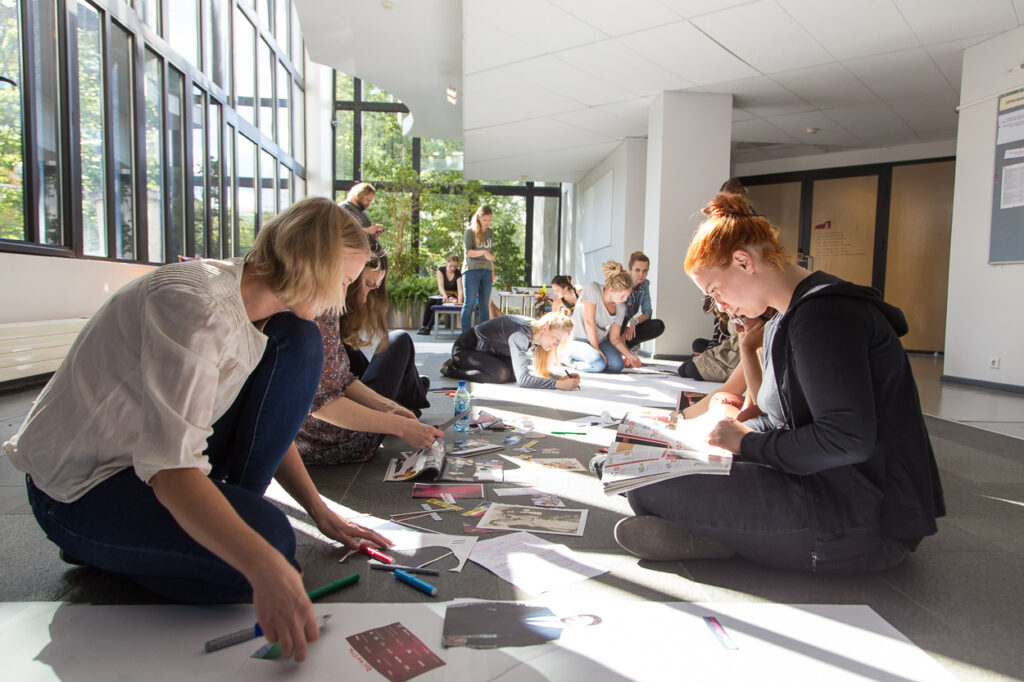Model for Mentoring in Arts Management
The project aims to create research based and practice-led description of the systematic establishing and running of mentorship models. The model will provide the main principles, methodology, administrative tools and guidelines on how to set up, run and develop the student-practice integration in the format of mentorship. The model will cover elements of life-long-learning of professionals. It will outline the necessary skills, competencies and mindset for the field specific and sustainable peer support and supervision. The model will propose several pedagogical and methodological tools fitting especially for the cultural management field of practice, but also applicable in universal learning settings.
Practical aspects of facilitating and sustaining the platform of mentorship would be covered from aspects of matchmaking to integration with higher education curricula. The approaches will be explained and illustrated with examples, suggestions, benefits and shortcomings.

The Model would be usable after the project for practitioners interested in lifelong learning, peer- supervision, internships and mentoring as well as for the education administrators, teachers and students. The model provides guidelines and support on “mentorage” that allows co-creation of knowledge throughout the professional life from studentship to well-established practitioner. It will take a form of e-publication easily spread in several virtual channels.
The Intellectual Output is built on bringing together knowledge of three aspects to co-create novel conceptualisation.

Qualification and occupational standards for the Mentor in Arts and Cultural Management
A pre study on the role of mentors point out that that the role of the Mentor in the Arts and Cultural Management is not clearly defined and generally does not seem to exist as a specific role/profession. The pre study was conducted on project partners current mentorship models and stakeholder activities, analyzing empirical data with comparisons to desk research on literature and reports, in addition to comparison with cases from our previous international partners.
Mentor is usually defined as someone with more experience on field, seen often as persona or archetype, a role model, but there appears no shared understanding on what kind of knowledge, skills and attitude the Mentor should be equipped with. However, majority of the research participants consider education and experience in the CCIs, empathy, digital skills and business experience as the core competences needed.
Importantly, the project aims the fill gap by strengthening the occupational profile and the professional development of Mentors and seeks to make an impact in providing innovative solutions to the social, geographical and economic barriers faced by students with inclusion of the disadvantaged young people at a time of high youth unemployment, through fostering arts management skills, namely focusing on interdisciplinarity (art and business/ art and society) as well as entrepreneurial mindset. The new mentor model aims to respond to the identified need in “Rethinking Education: Investing in skills for better socio-economic outcomes” tackling the challenge of mismatch of current skill set in HEI education, yet now aiming to provide specific skills tied to certain context but competences and knowledge that allows adapting and challenging current situations, interdisciplinary, critical thinking and entrepreneurial mindsets.
By putting together a policy recommendation paper we aim to address the lack of existing framework for occupational Profile of Mentor in Creative and Cultural Industries that could further influence a debate on regional but also European level concerning the importance of knowledge skills and competences to be nurtured within the profile of CCI Mentor.
The paper will aim to influence the educational institutions in partner countries but also local contact points for professional recognition qualification, European agencies, European Qualification Network, Framework for Qualification conference participants, national agencies for quality in HEIs etc. The aim is to influence the novel approach adopted for the new Mentor model, highlighting the importance of the new mindset on the role of Mentor in CCI. Thus, as we expect to have an impact on HEIs in partner institutions to include the new Mentor’s knowledge skills and attitudes acquisition in their curriculum related to CCI, the aim of the policy paper is to scale up the impact through influencing policy makers in local and European levels. The paper’s aim is also enabling faster and easier mobility of CCI professionals with competences in mentoring to other partner countries who have acknowledged and recognized mentor as an occupation, thus opening up the European market and accelerating career paths abroad.

The development of the model enhances action-based studying: the real life activities and interventions are studied, evaluated and analysed throughout the project to gain new knowledge for the final output.
Based on the analysis of the actions the knowledge will be further developed during the Intensive Study Programme (learning from action, action based development). The acquired vision of the mentorship process will be piloted after the IP accompanied with ongoing study of the process, evaluation of the outcomes and analysis of the usability.
Interactive Tool for CCI sector actors to bridge the gap with academia using mentorship program
The tool aims to collect experiences of mentors and mentees and put them together as an interactive roadmap and toolbox, where professional “mentors” in sector organizations could tap into looking for current tools and methods for undertaking the mentorship path in their organization.
The target group includes any sort of professional in the sector and beyond who is interested in joining the mentorship scheme and pairing up with a local university. Universities who plan to include mentorship into their curriculum as well as students who wish to become mentees and mentors in the future. The app will serve not only as tools and information source but also as a sort of “match making” program, that will enable to connect universities, students and mentors with similar needs/profiles.
The added value is that the app is international so it will serve as a linking platform for everyone in Europe and beyond wishing to participate in the program. Making the app attractive and resourceful will enable its full potential to be a truly international tool for matching participants of the mentorship program. It has a potential of enabling young professionals to become more mobile and for stakeholders to find a right match and to become a force to help accelerate young people’s careers.
